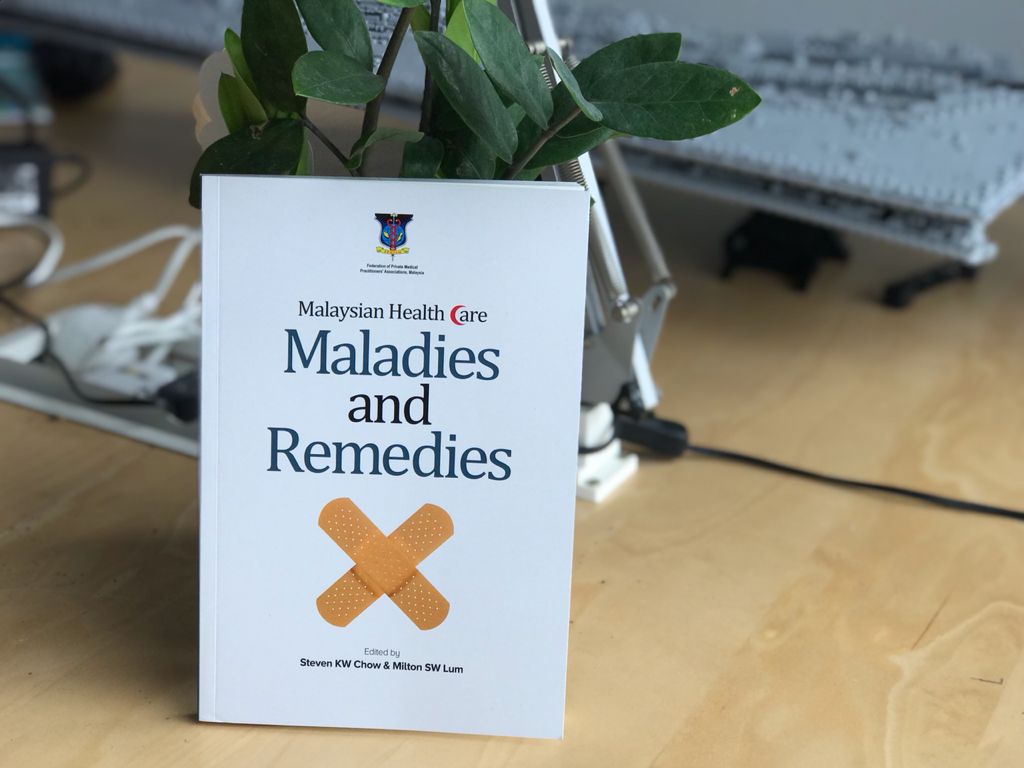KUALA LUMPUR, August 31 — The Federation of Private Medical Practitioners’ Associations Malaysia (FPMPAM) has published a book advocating reforms to Malaysia’s health care system.
“Malaysian Health Care: Maladies and Remedies” — a collection of essays edited by Steven KW Chow and Milton SW Lum and written by doctors, academics and senior retired government officials — reveals pressing health care issues in the country, matters that are usually not brought to the attention of the public.
The book, which was launched virtually on August 28, discusses various health care issues, including the significance of boosting primary care, housemanship issues, hospital safety, health care delivery in Borneo states, health care access for indigenous people, health care financing, and inequalities in health care delivery.
“As we have learned the hard way from the Covid-19 pandemic crisis, the old way of doing things must change,” FPMPAM president and book editor Dr Steven KW Chow mentioned at the virtual launch of “Malaysian Health Care: Maladies and Remedies” last Saturday.
“It is time to end the previous top-down approach to enact legislation and policies related to health, paying only lip service to consulting patient groups, health care professionals, and other stakeholders who would be directly impacted by such measures.”
He also laid emphasis on meaningful private-public partnership programmes as a means to enhance the strength of the Malaysian health care system and eliminate unnecessary structural barriers.
Dwelling on the much stretched health care system, the book discusses a much needed evolution of the country’s healthcare system that is suitable for the 21st century.
The health care experts who joined the book launch also shared their expectations and suggestions that newly appointed Health Minister Khairy Jamaluddin can implement to upgrade the health care system that they said needs new intervention measures, amid the fierce Covid-19 outbreak.
Former Health director-general Dr Abu Bakar Suleiman welcomed the unique features of the book that addresses a wide gamut of topics that can be customised to the needs of the health care system in general.
He pointed out that the thrust of care services must be at the primary care level and must be upgraded to provide more comprehensive services.
Dr Abu Bakar, who highlighted the health care financing system in both rural and urban facilities, said: “This is where the funding system is critically important, which is very limited.”
According to former Malaysian Medical Association (MMA) president Dr Yeoh Poh Hong, political interference in major policy decisions is a huge setback to reforms for an effective health care system.
“If the new minister can be a powerful political motivator and, at the same time, allow actual health personnel to carry out the correct decisions, I think that will be a great first step,” Dr Yeoh said at the book launch.
“I think that we are in a sense, as an Asian country, and with a mix of our population, we are traditionally quite an obedient sort of group. I think that the government must not abuse our obedience, but rather, utilise our obedience to formulate philosophies and measures for healthcare delivery to meet our aspirations.”
Dr Yeoh highlighted that political interference had always been a barrier for the implementation of good health policies in the country.
Dr Milton Lum, also a former MMA president and editor of “Malaysian Health Care: Maladies and Remedies”, said that Khairy should start focusing on health as his utmost priority in MOH.
“There’s a difference between health care and health. The priority now is health care for those with Covid-19 disease, but we have all those non-Covid-19 conditions. They are all left aside and this is going to haunt them for a long time to come,” Dr Lum stated.
“But at the end of the day, you have to reward people to maintain good health, so that they need less health care.”
Dr Lum added that top-down processes and bottom-up processes should be done in parallel for the policy-making process.
“I think leadership should be at all levels, not just at top management. This can only occur if there is an open culture in MOH where dissent, alternative views should always be welcomed by the top management.”
“Malaysian Health Care: Maladies and Remedies” can be ordered online on FPMPAM’s website.








